How to Build the Right Conveyor
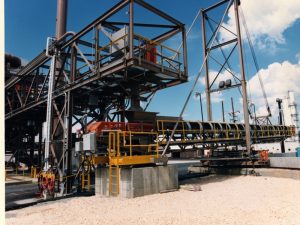 If you’re in the market for a conveyor for your factory or industrial plant, you don’t have to settle for a pre-fabricated, “cookie-cutter”-style conveyor that only meets some of your needs. Materials Handling Equipment (MHE) can custom-manufacture a heavy-duty conveyor that is designed to check all the boxes for your company and will provide the efficiency and productivity gains you’re hoping for. Our team of experts will work with you to design the ideal custom conveyor, and the process will be determined by a variety of important considerations. For us to build the right conveyor for your company, we will need to establish:
If you’re in the market for a conveyor for your factory or industrial plant, you don’t have to settle for a pre-fabricated, “cookie-cutter”-style conveyor that only meets some of your needs. Materials Handling Equipment (MHE) can custom-manufacture a heavy-duty conveyor that is designed to check all the boxes for your company and will provide the efficiency and productivity gains you’re hoping for. Our team of experts will work with you to design the ideal custom conveyor, and the process will be determined by a variety of important considerations. For us to build the right conveyor for your company, we will need to establish:
What Type of Bulk Material Needs to Be Conveyed
The list of materials that conveyors can handle is long and growing, as there are a wide variety of industries that utilize conveyor systems to speed up their productivity. Some of the materials conveyors can help with include cement, fly ash, food waste, bottom ash, aggregates, cereal grains, and more.
This is the most important variable in determining what type of conveyor needs to be built. If your company is in an industry like power and utilities, construction, or chemicals, you may want to consider a drag conveyor, which contains a series of plates that are dragged through a trough to move the material. If the material is especially fine or granular, a better option may be a screw conveyor that uses a rotating screw blade within a tube. For a harsher environment and bulkier material, an apron conveyor offers an ideal carrying surface.
How Much Space Is Available
The size of the conveyor will also play a large factor in its cost. MHE offers custom conveyors that can reach heights of up to 200 feet, can stretch for up to 300 feet, and can handle the steepest inclines in the industry. Because the conveyors we provide are completely custom, we can design yours to perfectly fit the available space, which leads to greater efficiency and improved safety.
The Type of Environment It Will Occupy
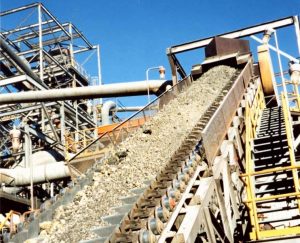 The harsher the environment, the more durable the conveyor will need to be. MHE is recognized for producing conveyors that can handle the most extreme conditions, including severe corrosion and abrasion and high temperatures, without missing a beat. Our conveyors last for decades in extreme environments thanks to upgrades like custom-engineered drive components, special wear-resistant alloys, and internal Ni-Hard gravity take-up bearings.
The harsher the environment, the more durable the conveyor will need to be. MHE is recognized for producing conveyors that can handle the most extreme conditions, including severe corrosion and abrasion and high temperatures, without missing a beat. Our conveyors last for decades in extreme environments thanks to upgrades like custom-engineered drive components, special wear-resistant alloys, and internal Ni-Hard gravity take-up bearings.
What Types of Customizations It Will Need
Your company is unique, and your conveyor system needs to be as well. We offer a wide array of customization options to ensure that your specific needs are being met and that your conveyor is offering optimal efficiency.
Let MHE Build the Right Conveyor For Your Company’s Needs
MHE has been custom-engineering heavy-duty conveyors for companies throughout the United States since 1927. We’ve become a respected industry leader by offering a superior product for a comparable price, and we always stand behind our work. In fact, we’ll be standing by 24/7 in case you ever have an issue with your conveyor.
If you’d like to learn more about the custom conveyors we offer, contact us today to schedule a consultation.

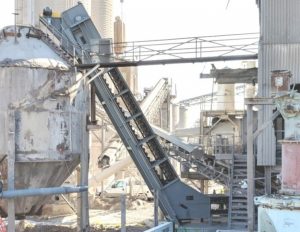 The right kind of conveyor system can do wonders for the productivity of a factory or industrial plant, as it can eliminate some steps in the manufacturing process and accomplish others much more efficiently. If you’re in the market for a heavy-duty conveyor system for your company, the first question that likely came to mind is “How much will it cost?” There’s no simple answer to that question, however, as there are many different factors that will come into play when determining the initial costs your company will face. Yes, there are “cookie-cutter” conveyor systems on the market that have set prices, but these are not a good option for companies that want a conveyor that accomplishes specific goals and is manufactured to fit in a pre-determined space.
The right kind of conveyor system can do wonders for the productivity of a factory or industrial plant, as it can eliminate some steps in the manufacturing process and accomplish others much more efficiently. If you’re in the market for a heavy-duty conveyor system for your company, the first question that likely came to mind is “How much will it cost?” There’s no simple answer to that question, however, as there are many different factors that will come into play when determining the initial costs your company will face. Yes, there are “cookie-cutter” conveyor systems on the market that have set prices, but these are not a good option for companies that want a conveyor that accomplishes specific goals and is manufactured to fit in a pre-determined space.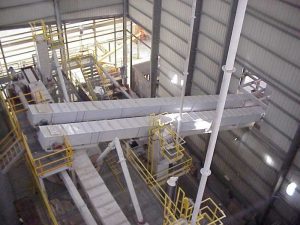 One of the biggest differentiators in the conveyor industry is the ability of a conveyor to reliably perform in extreme environments. Simply put, many of the products on the market aren’t engineered to be able to handle extreme corrosion, severe abrasion, and high temperatures for long periods. At MHE, we utilize heavy-duty elements, such as custom-engineered drive components, special wear-resistant alloys, and internal Ni-Hard gravity take-up bearings. This ensures that our
One of the biggest differentiators in the conveyor industry is the ability of a conveyor to reliably perform in extreme environments. Simply put, many of the products on the market aren’t engineered to be able to handle extreme corrosion, severe abrasion, and high temperatures for long periods. At MHE, we utilize heavy-duty elements, such as custom-engineered drive components, special wear-resistant alloys, and internal Ni-Hard gravity take-up bearings. This ensures that our 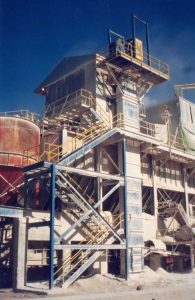 If your company deals with any type of bulk material that needs to be moved quickly and efficiently, there will likely come a point where a custom conveyor becomes a necessity. Conveyor systems are able to transport all types of materials with unmatched efficiency, and you can count on them to perform year after year in hazardous conditions. While the initial setup costs may be high, there’s no doubt that a custom conveyor system will pay for itself in almost no time.
If your company deals with any type of bulk material that needs to be moved quickly and efficiently, there will likely come a point where a custom conveyor becomes a necessity. Conveyor systems are able to transport all types of materials with unmatched efficiency, and you can count on them to perform year after year in hazardous conditions. While the initial setup costs may be high, there’s no doubt that a custom conveyor system will pay for itself in almost no time.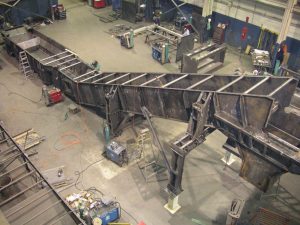
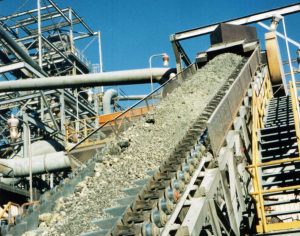 If you need to move large quantities of bulk material quickly and efficiently at an industrial plant, you’re probably trying to determine which type of industrial conveyor will work best for your needs. Industrial conveyors that are made well can handle all types of materials and can function in the most extreme environments, and you’ll likely have several different options to choose from. The most important variables to consider when choosing the right conveyor are:
If you need to move large quantities of bulk material quickly and efficiently at an industrial plant, you’re probably trying to determine which type of industrial conveyor will work best for your needs. Industrial conveyors that are made well can handle all types of materials and can function in the most extreme environments, and you’ll likely have several different options to choose from. The most important variables to consider when choosing the right conveyor are: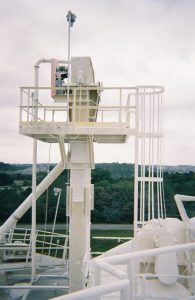 This type of conveyor can elevate both light and heavy bulk materials and is effective for materials that are fine or coarse with large lumps. They can be used for food, cement, wood chips, etc., and depend on centrifugal force to get materials into the discharge chute, or on gravity if a slower discharge is required.
This type of conveyor can elevate both light and heavy bulk materials and is effective for materials that are fine or coarse with large lumps. They can be used for food, cement, wood chips, etc., and depend on centrifugal force to get materials into the discharge chute, or on gravity if a slower discharge is required.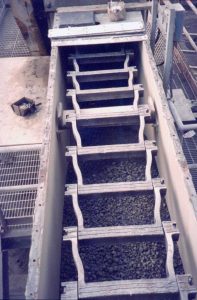 An industrial conveyor, if manufactured properly, can provide decades of service, moving large quantities of bulk material quickly and reliably. However, like any type of industrial equipment, a conveyor will eventually need to be replaced. Deciding when a new conveyor is needed isn’t always easy, especially considering the time and expense involved in a conveyor replacement project. Additionally, being without a conveyor for days or weeks at a time can bring your company to a standstill. If you want to plan ahead to ensure a smooth transition, be cognizant of the following reasons why a conveyor may need to be replaced:
An industrial conveyor, if manufactured properly, can provide decades of service, moving large quantities of bulk material quickly and reliably. However, like any type of industrial equipment, a conveyor will eventually need to be replaced. Deciding when a new conveyor is needed isn’t always easy, especially considering the time and expense involved in a conveyor replacement project. Additionally, being without a conveyor for days or weeks at a time can bring your company to a standstill. If you want to plan ahead to ensure a smooth transition, be cognizant of the following reasons why a conveyor may need to be replaced: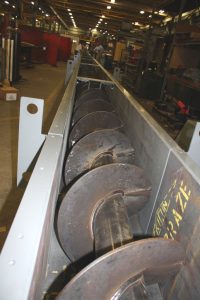 If your current industrial conveyor was custom-manufactured to meet a highly specific application but your company heads in a different direction or starts working with additional types of bulk material, you may need to replace it. Different types of conveyors are needed for various bulk materials. For instance,
If your current industrial conveyor was custom-manufactured to meet a highly specific application but your company heads in a different direction or starts working with additional types of bulk material, you may need to replace it. Different types of conveyors are needed for various bulk materials. For instance,